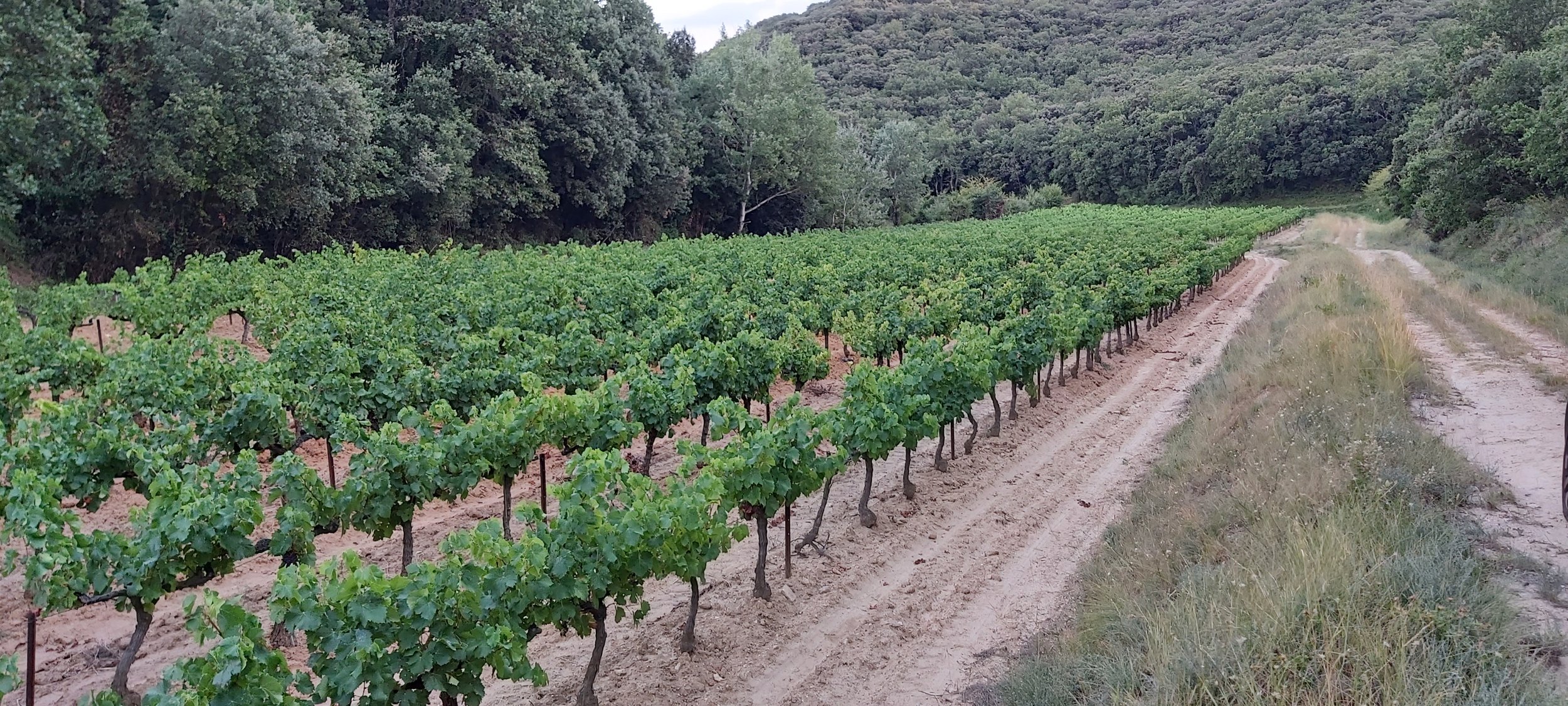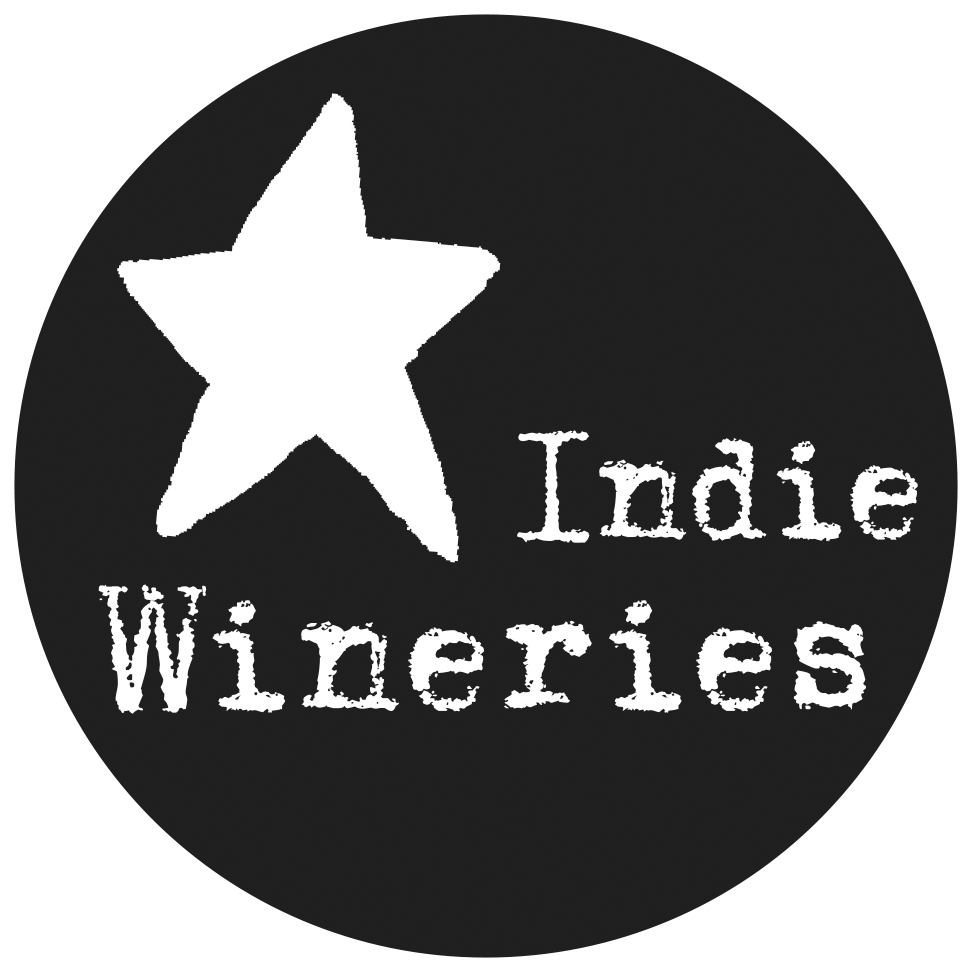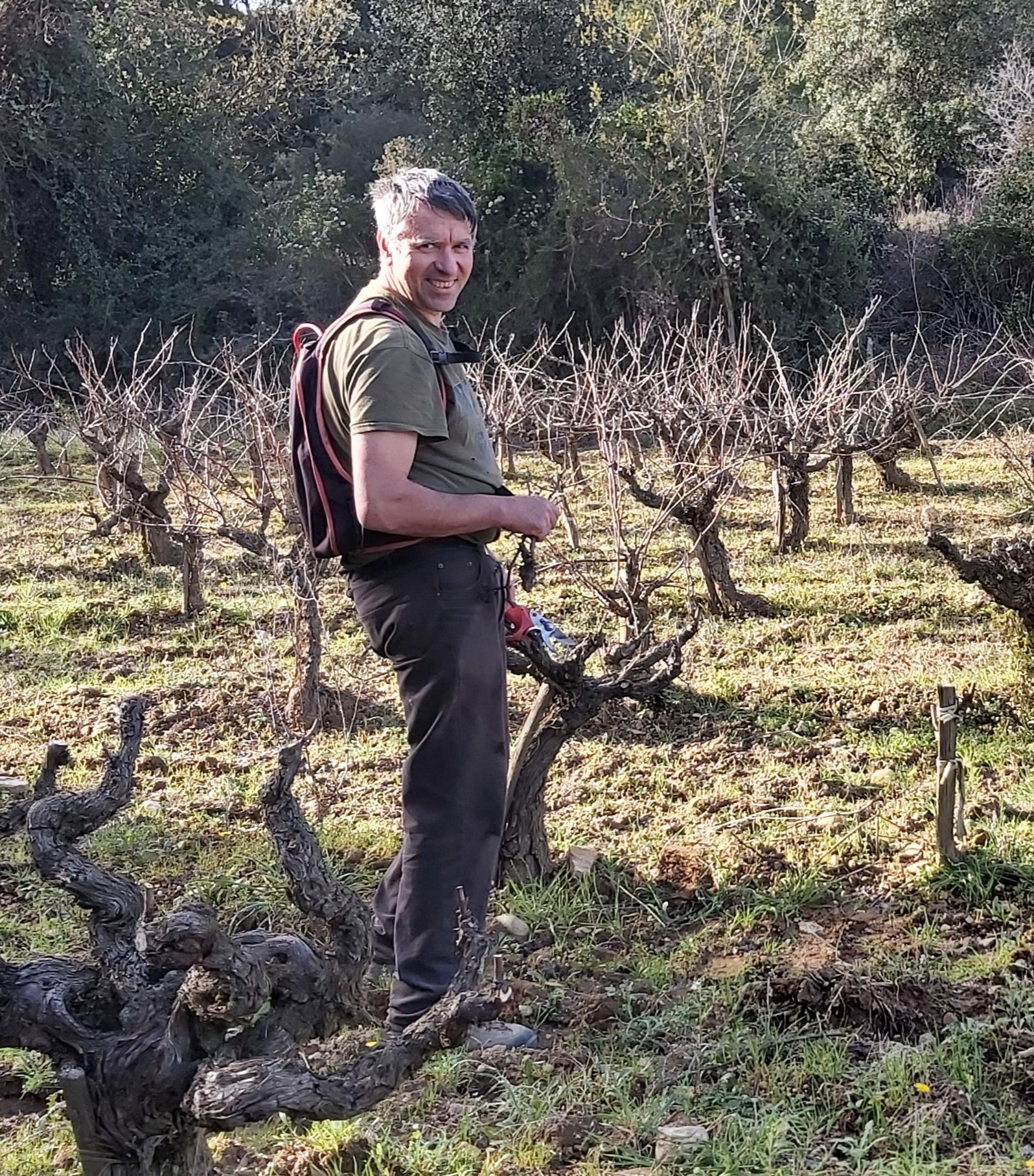Domaine Combe Queyzaire
Denis Deschamps is not from the Rhone. He is from the Savoie. He studied oenology and viticulture and worked locally, but then was offered a consulting gig in the Rhone. It was 1996. He drove South. Thru Grenoble. Thru Valence, down into the upper Cotes du Rhone regions. His first stop was the Ceze Valley, located about 10 miles west/northwest of Orange. What he found was a wine world untouched. He also found diversity in the terroir: galets, limestone, sand, clay, clacaire, and even loess. The diurnal temperature swings were enormous and the wind was very intense. It was like discovering a beautiful old house, with magnificent old bones, that just needed tender loving care. Denis never forgot this house.
By 2000, he was asked to continue farther South once again. Southwest of Tavel an exciting project was well underway: the Estezargues Cooperative.
Most of us now know Estezargues, as so many excellent and high quality, organic Rhone bottlings come from this cooperative. Estezargues' story begins in 1989 with Jean Francois Nicq. Nicq arrived having met Thierry Puzelat, Marcel Lapierre, Michele Aubery-Laurent (of Gramenon), and the Dutheil family of Chateau Saint Anne, all of whom collectively turned him on to the principles of natural wine: organic viticulture, native yeast fermentations, few inputs in the cellar. Armed with these principles, Nicq had a vision for Estezargues. Instead of diversifying his sourcing to hundreds of different growers, Nicq would concentrate his sourcing efforts around 10 principle larger growers that he could truly partner with. He would vinify their harvests separately and with native yeasts (something unheard of at Rhone cooperatives at the time). This would allow him to see ten different terroirs, but at scale. And while this sounds obvious today, consider that it was being done in the 90s and with a collective 500 hectares- no one else had ever done this before.
And it worked! Estezargues became a model for the Rhone- for what could be achieved at scale; no longer just cheap bulk Cotes du Rhone, but terroir driven wine, farmed properly, and executed to respect and demonstrate each grower's terroir. By 2001, Estezargues was humming, but Nicq wanted to go back to the land. He tapped a young viticulturalist / oenologist who was also a 'soil head' and infatuated with making wines that could showcase the diversity of the Rhone's terroir. Denis Deschamps became the Director of Estezargues Cooperative in 2002. Denis added to, and amplified, the work Nicq had started and maintained the founding principles. He drove quality at Estezargues until 2020, when he stepped down.
I have heard stories of great chefs, with vast culinary empires, that at the apex of their career wish only to shed it all so they can return to a small bistro. For all of the accolades and money and fame, once achieved, the want is to return the simple beauty of their craft. 'I just want to cook', they say.
They are not alone.
Jean Francois Nicq did exactly this and headed West to French Catalonia to start Les Foulards Rouges. And after almost 20 years at Estezargues, Denis Deschamps has done this as well. During all of his time at Estezargues Denis never forgot the Ceze Valley- his first experience up in the northwestern corner of the Southern Rhone; its diversity of terroirs, of geology and soil, the small old vine, goblet trained vineyards- the wind and dynamic temperature swings.
And so, in 2017 he bought one tiny parcel- a fixer upper, but with great bones: Les Fonts in Saint Nazaire. He harvested and made just 14 hectoliters in 2017. Then in 2018 he bought another fixer upper parcel named La Nouve in Venejan, just around the corner. Where Les Fonts had higher in altitude (220m) and galets terroir, La Nouve was blessed with calcaire soils and sand and loess- a terroir rarely seen in the Rhone; a terroir only the wind could create.
The 2019 vintage saw Denis make two wines- one from each climat. On the label they are simply listed: Cotes du Rhone Rouges and Cotes du Rhones Rouges Vieilles Vignes. But, these are artisanal micro Rhone bottlings of a master craftsman. These wines are Denis' very personal passion project- just him and his vineyards.
So, where does Indie Wineries fit into all of this?
Well, we were contacted by Denis Deschamps European agent- an old friend of ours- last year. Would we want a Cotes du Rhone? Eek, a Cotes du Rhone. There's so many Cotes du Rhones...No, it's not just another domaine, it's the director of Estezargues' personal project- just 2.5 hectares. Oh! We had to taste the wines.
Balanced is the first word. Like the feeling you get when you walk into a perfectly restored older home. Everything in its right place. No corners cut. And then as you spend time in the building you start to see the details that give the home its personality. You notice all of the micro details that tell you someone who knew what they were doing re-did the house. Well, the same goes with these wines. The attack on the palate is the walk through of this restored old home. The construction is fantastic. The wines drink of a much higher appellation than their names evoke. Then, spending time with them in the glass, over days, with food, and re-tastes here and there you taste the old vine, higher altitude ethereal power of the Viielles Vignes, and you taste the elegant composition of the Grenache-Syrah blending in the straight Cotes du Rhone Les Fonts vineyard. You taste the texture of the loess.
Two jewels from a craftsman. Not a lot of wine, and that's OK. Indie will receive 100cs of the CDR Rouge 2019 and 35cs of the CDR Rouge Vieilles Vignes 2019 on March 4th.
And so, if you are a fan of Estezargues, then by default you are already a fan of Denis Deschamps. Or, if you are simply a fan of great wine made by a true craftsman with care and love, then, these are both worth your time.




